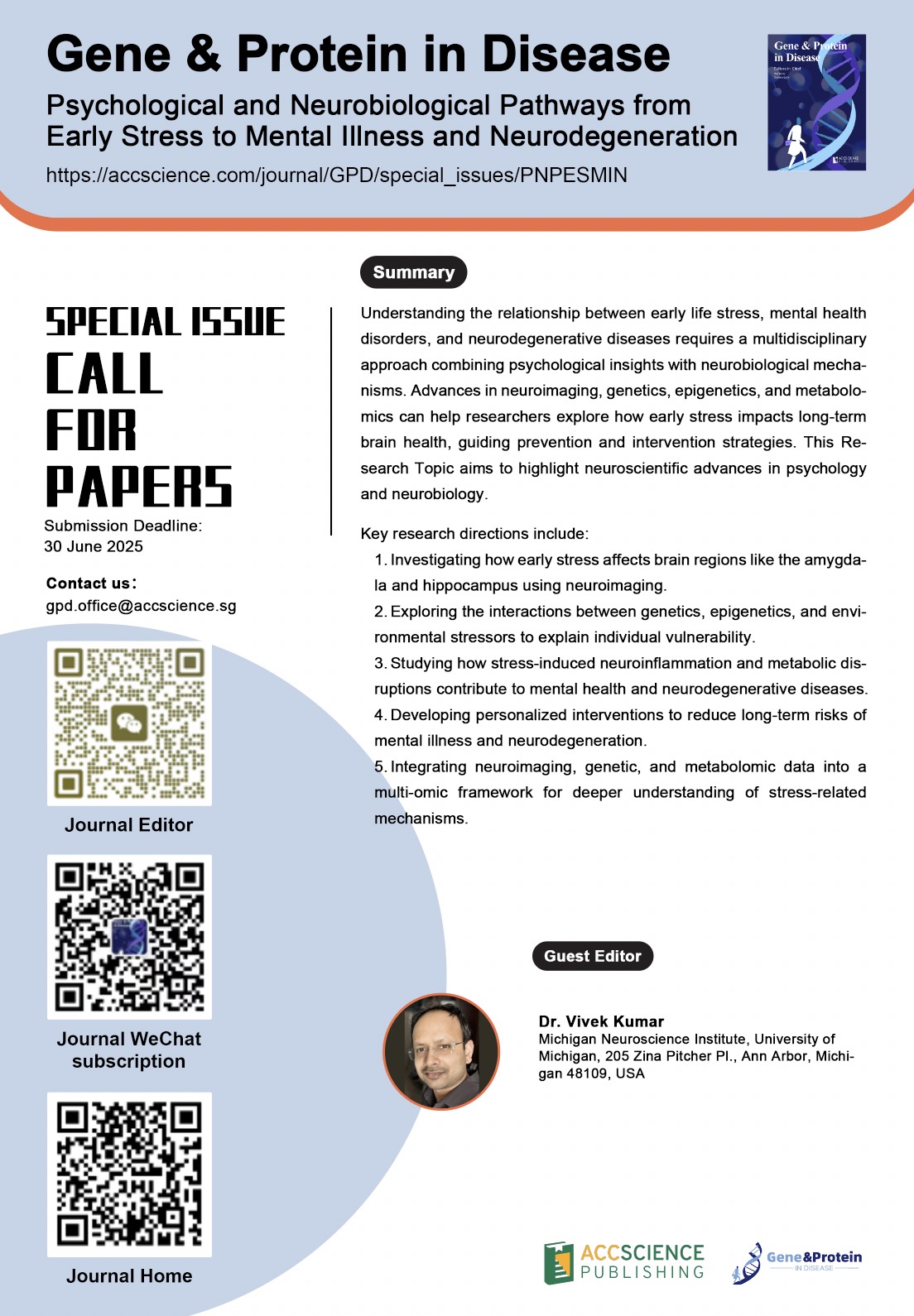Psychological and Neurobiological Pathways from Early Stress to Mental Illness and Neurodegeneration

Michigan Neuroscience Institute, University of Michigan, Michigan, United StatesPsychiatric disorders; Monoaminergic systems; GABAergic systems; Anxiety; Stress; Depression; Substance abuse; Genetic basis of emotionality; Developmental basis of Emotionality; Cellular and molecular neuroanatomy of rodent and pstmortem human brain; Light sheet microscopy; Large image-data analysis; Multiplexed fluorescence in situ hybridization; Brain transparency techniques; iDISCO

Understanding the relationship between early life stress, mental health disorders, and neurodegenerative diseases requires a multidisciplinary approach combining psychological insights with neurobiological mechanisms. Advances in neuroimaging, genetics, epigenetics, and metabolomics can help researchers explore how early stress impacts long-term brain health, guiding prevention and intervention strategies.
Key research directions include:
- Investigating how early stress affects brain regions like the amygdala and hippocampus using neuroimaging.
- Exploring the interactions between genetics, epigenetics, and environmental stressors to explain individual vulnerability.
- Studying how stress-induced neuroinflammation and metabolic disruptions contribute to mental health and neurodegenerative diseases.
- Developing personalized interventions to reduce long-term risks of mental illness and neurodegeneration.
- Integrating neuroimaging, genetic, and metabolomic data into a multi-omic framework for deeper understanding of stress-related mechanisms.
This Research Topic aims to highlight neuroscientific advances in psychology and neurobiology. Contributions involving methodologies like psychological analyses, neuroimaging, neurophysiology, neurochemistry, and computational neuroscience are welcome. These insights will enhance our understanding of early life stress and guide the development of predictive models and therapies for psychiatric and neurodegenerative diseases.

